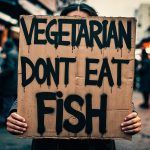When it comes to dietary choices, the term “vegetarian” often evokes a variety of questions within vegetarians, especially regarding the inclusion of eggs. For vegans, who avoid all animal products, this is a clear-cut issue. However, for many vegetarians, the question of whether or not to include eggs can be more nuanced and personal. Let’s dive into this topic and explore the different perspectives on egg consumption within the vegetarian community.
Defining Vegetarianism
At its core, vegetarianism is the practice of abstaining from eating meat. However, there are several subcategories of vegetarianism that can influence whether or not eggs are included in a person’s diet:
- Lacto-vegetarians: These individuals consume dairy products but avoid eggs.
- Ovo-vegetarians: These vegetarians include eggs in their diet but avoid dairy.
- Lacto-ovo vegetarians: This is the most common type, where individuals consume both dairy products and eggs.
- Pescatarians: While not strictly vegetarian, they eat fish and seafood along with vegetables and other plant-based foods.

The Great Egg Debate
For lacto-ovo vegetarians, eggs are often viewed as a healthy and versatile source of protein. Eggs are rich in essential nutrients, including vitamins A, D, B12, and riboflavin, and provide high-quality protein with all the essential amino acids. Many vegetarians appreciate the nutritional value of eggs, especially in a balanced diet that may lack certain nutrients found in meat.
However, the decision to eat eggs can also hinge on ethical considerations. Some vegetarians may choose to avoid eggs due to concerns about animal welfare and factory farming practices. The conditions in which hens are raised—often in cramped cages and without access to outdoor space—can be distressing to animal rights advocates. As a result, many vegetarians seek out eggs that come from pasture-raised or free-range hens, believing this is a more ethical choice.

The Vegan Perspective
From a vegan standpoint, the issue of eggs is clear: they are considered an animal product and therefore not included in a vegan diet. Vegans advocate for animal rights and the ethical treatment of animals, often highlighting the exploitative nature of the egg industry. They point out that even free-range and organic eggs may not be as humane as they appear, as hens are often still subjected to the same practices that limit their natural behaviors.
Vegans often turn to plant-based alternatives to fulfill their dietary needs. Products made from chickpeas, flaxseeds, or aquafaba (the liquid from canned chickpeas) can provide similar textures and functions in recipes that traditionally rely on eggs.

Navigating Dietary Choices
For those who identify as vegetarians and are contemplating the inclusion of eggs in their diet, it’s essential to reflect on personal values and dietary goals. Questions to consider include:
- What are my ethical beliefs about animal welfare?
- How do I feel about the environmental impact of egg production?
- What nutritional benefits do I hope to gain from including or excluding eggs?
By considering these factors, vegetarians can make informed choices that align with their values.
Conclusion
In the world of vegetarianism, the question of whether to eat eggs is as multifaceted as the individuals who embrace the lifestyle. While some vegetarians enjoy eggs for their nutritional benefits, others might opt out due to ethical concerns. Ultimately, the decision is a personal one, shaped by beliefs about health, nutrition, and animal welfare.
Whether you’re a lifelong vegetarian, a curious vegan, or someone contemplating dietary changes, understanding the nuances of egg consumption can enrich your perspective on food choices. Embracing a vegetarian lifestyle doesn’t have to be one-size-fits-all; it can be a journey of exploration and self-discovery, leading you to a diet that resonates with your values and enhances your well-being.












